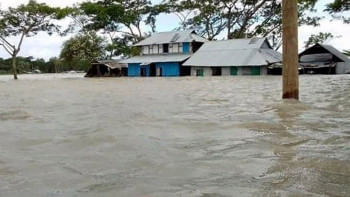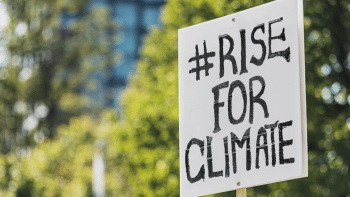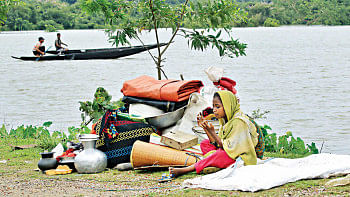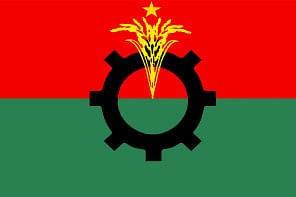A turning point in the struggle for climate justice

Last week, the United Nations General Assembly adopted a resolution seeking opinion of the International Court of Justice (ICJ), also known as the world court, to outline nations' legal obligations towards addressing climate change. The resolution notably asks ICJ to clarify "legal consequences" for states that have caused "significant harm" to the climate and the environment in general. The resolution also specifically asks the ICJ to address climate change by weighing obligations to small island nations and other developing countries, who are among the "most vulnerable" and worst sufferers of the effects of climate change.
This move by the UN General Assembly is a significant step in the quest of a bolder and stronger climate action. The resolution put forward by the cyclone-battered Pacific Island nation of Vanuatu, with support from a broad coalition of states, and later co-sponsored by more than 130 countries, is focused on the adverse impacts of climate change and climate justice for the poorer nations, who are at the frontlines of the climate crisis. The lobbying for such a resolution was started by the Government of Vanuatu in 2021, after a campaign initiated by a group of students in a Fijian university in 2019.
The ICJ, established in 1945, is the highest UN judicial body and was set up to deal with disputes between nation states. The next steps will likely include compiling a dossier of relevant cases and issues by the UN Secretariat, perhaps by the UN Environment Programme, for submission to the court. The ICJ may then bring one or more countries or companies, who are polluters, to the court and conduct hearings. The ICJ move regarding climate injustice may bring more lawsuits in courts around the world.
The scope of the resolution invites the ICJ to look beyond the Paris Agreement explicitly to human rights issues and intergenerational equity, which are rarely addressed in the current discourses on climate justice issues, opening the door to greater accountability owed to these groups. Many experts view the adoption of the resolution as the most "important global move" since the Paris Agreement.
Although the ICJ's advisory opinions are not legally binding, they do carry legal authority and moral weight and may push emitters to cut emissions faster and strengthen their climate-related plans and actions. The ICJ opinion may also give new meanings to climate commitments and human rights issues. For instance, the right to clean, healthy, and sustainable environment is now legally recognised in 156 countries around the world. This is now an internationally agreed commitment.
With the adoption of the resolution and ICJ involvement soon, the concept of climate justice will likely turn into a movement for equity. The ICJ may look at climate change as an issue of injustice and link the climate challenges to socioeconomic and ecological systems that undermine rights of people, particularly the poor, marginalised, and the most vulnerable groups. The concept of justice will then underpin the principles of equity, non-discrimination, fairness, and accountability between and among nations, paving a just transition out of the climate crisis. To date, the role of big-time polluters is viewed more in "veto" action, while small states and non-state-actors or NGOs are working for climate justice. Any future ICJ opinion should ask the big powers categorically and send a clear message that they need to shoulder responsibilities for climate change mitigation and adaptation, and address loss and damage resulting from climate change.
We all welcome the landmark resolution. The advisory opinion of ICJ may work as an important catalyst for the urgent and equitable climate action that is needed to stop global heating. However, we must not forget that countries are affected differently by climate change – for instance, by increasing floods, droughts, tidal surges, increasing incidence of cyclone storms and other forms of natural disasters. Countries like Vanuatu and Tuvalu, for example, are facing existential threat from rising sea levels, while others in Sub-Saharan Africa are suffering from drought.
Furthermore, any move towards climate justice must be interlinked with climate finance. Essentially countries such as Bangladesh, Vanuatu, Tuvalu, and other vulnerable nations need funding to build flood defences and resettlement of the displaced people, while others may need help and technology for transition away from fossil fuels to more sustainable pathways.
Finally, climate finance initiatives must be based on creative thinking, with a focus on people-centred climate solutions. The problems of climate injustice in the Global South arise from a broader story of socioeconomic injustices in local contexts. For instance, low-income communities, indigenous people, people with disabilities, the very poor, the older or very young, and female-headed households can be more prone to greater risks posed by climate impacts such as storms and floods, loss of land due to river erosion, severe heat, poor air quality, access to food, water, and shelters. The world desperately needs a safe and healthy environment essential to human life and well-being.
Dr Mohammad Zaman is an international development specialist and former founding executive director of the Society for Bangladesh Climate Justice in Vancouver, Canada.


 For all latest news, follow The Daily Star's Google News channel.
For all latest news, follow The Daily Star's Google News channel. 










Comments